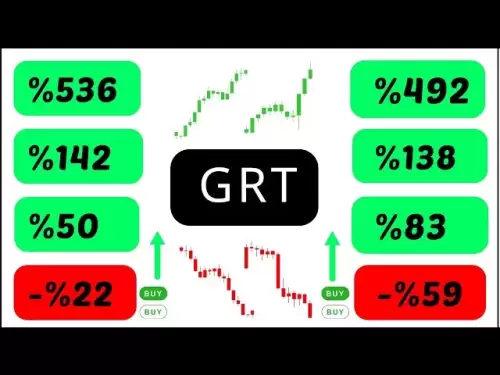 |
|
 |
|
 |
|
 |
|
 |
|
 |
|
 |
|
 |
|
 |
|
 |
|
 |
|
 |
|
 |
|
 |
|
 |
|
Cryptocurrency News Articles
Bitcoin (BTC) Price Surges as US Labor Market Cracks Under Pressure
May 26, 2025 at 04:18 am
It seems the U.S. labor market has hit a pothole—again. The Kansas City Fed's Labor Market Conditions Index (LMCI) dropped for the second month straight

The U.S. labor market appears to be running into some trouble. The Kansas City Fed’s Labor Market Conditions Index (LMCI) dropped again for a second month, highlighting that hiring-related matters are beginning to get "sticky." As wage growth slows and job creation cools, whispers of "r-word" are emerging once again on Wall Street's bingo card.
However, while traditional assets are showing signs of stress, Bitcoin is doing the complete opposite—sitting back, sipping digital tea, and soaking up more institutional cash.
But ETFs are seeing huge inflows as big money shifts out of riskier assets.
The threat of a U.S. recession is causing institutional investors to reallocate their portfolios away from equities and towards safer assets, such as Bitcoin. As risk in traditional assets increases, crypto is becoming a preferred choice.
This isn’t a FOMO rally; rather, it's a classic portfolio rotation move by hedge funds and pension managers as they seek to reduce volatility and invest in assets that are less likely to be affected by economic setbacks.
The LMCI dropped to 10 in July from 17 in June, according to fresh Kansas City Fed data released on Friday. Economists had anticipated a smaller decline to 16.
This marks the second consecutive month of decline, which could be attributed to a slowdown in hiring and a decrease in wage growth, explained Robert Smith, an economist at PHB Impact Investment in Princeton, New Jersey.
Two consecutive months in the red might indicate that the Fed's interest rate hammer is finally making cracks in the real economy, and if this continues, it’ll likely fuel expectations of rate cuts, which historically boosts risk assets like BTC.
This would continue to favor Bitcoin over traditional assets, especially if the labor market continues to deteriorate, leading to anticipations of a recession and pushing investors to seek safer havens.
The narrative of Bitcoin as a safe haven is becoming increasingly apparent. In times of macro chaos, investors usually look for assets that are liquid, limited in supply, and not controlled by central banks.
This explains why BTC isn't merely surviving the current macroeconomic turmoil but is actually thriving in it.
Of course, Bitcoin still has its speculative edges, but in times like these, even the suits are admitting that BTC deserves a seat at the “safe haven” lunch table—right next to gold, bonds, and a stiff drink.
If the labor market continues its downhill jog and rumors of a looming recession gain momentum, we might see even more love flowing towards Bitcoin from hedge funds, pension managers, and everyday investors seeking to hedge their bets.
With BTC ETF inflows accelerating and investor sentiment shifting, this could be the start of a broader move—not just for Bitcoin, but for digital assets as a whole. So while the job market sends warning signals, Bitcoin just might be blinking green.
Disclaimer:info@kdj.com
The information provided is not trading advice. kdj.com does not assume any responsibility for any investments made based on the information provided in this article. Cryptocurrencies are highly volatile and it is highly recommended that you invest with caution after thorough research!
If you believe that the content used on this website infringes your copyright, please contact us immediately (info@kdj.com) and we will delete it promptly.




























































